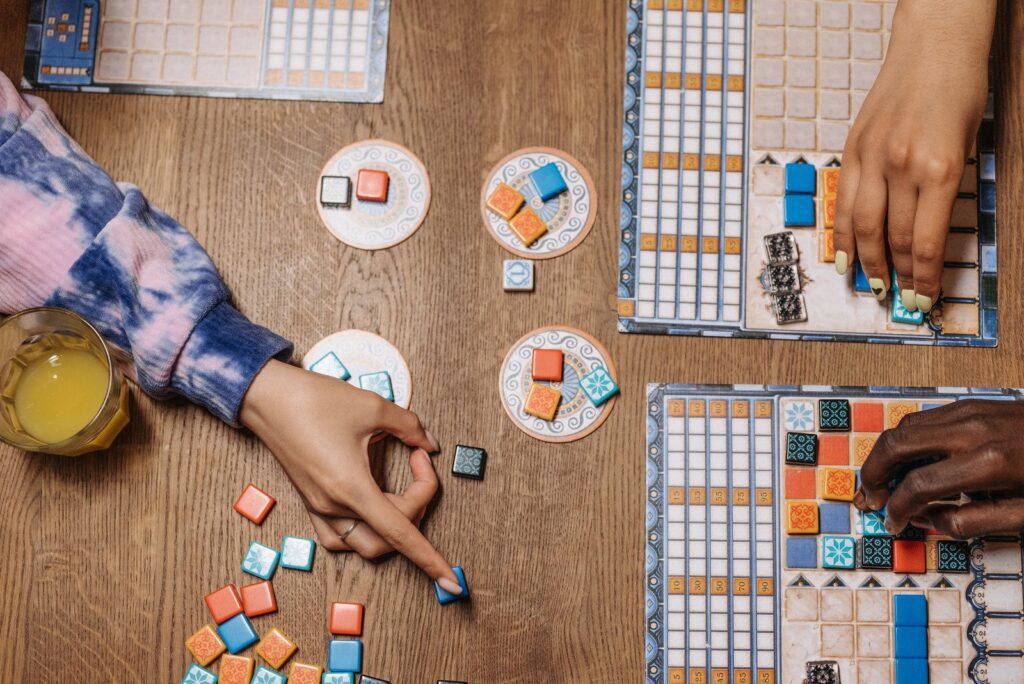Welcome to the captivating world of puzzle games, where logic meets creativity and challenges spark excitement! Whether you’re a crossword enthusiast or a Sudoku master, this blog post is your gateway to unraveling the mysteries behind these brain-teasing pastimes. Join us as we delve into the history of crosswords, explore the rise of Sudoku, uncover the benefits of playing puzzle games, discover other popular types of puzzles, and share valuable tips for beginners. Get ready to exercise your mind and embark on an adventure filled with fun and mental stimulation!
The History and Evolution of Crosswords
Let’s take a journey back in time to explore the fascinating history and evolution of crosswords. Did you know that the first-ever crossword puzzle was created by journalist Arthur Wynne and published in the New York World newspaper in 1913? Initially dubbed a “word-cross,” this innovative game quickly gained popularity among readers.
Throughout the years, crosswords have evolved from simple grids with definitions to more complex puzzles that challenge even the most seasoned solvers. The incorporation of themes, wordplay, and clever clues has transformed crosswords into a beloved pastime for many.
Crossword puzzles have not only entertained millions worldwide but also served as a creative outlet for writers and constructors. With their unique blend of language skills and problem-solving abilities, these puzzles continue to stand the test of time, captivating enthusiasts across generations.
The Rise of Sudoku and its Popularity
Sudoku, a number puzzle game that originated in Switzerland in the late 18th century, has seen a remarkable rise in popularity worldwide since its introduction to the Western world in the early 20th century. What sets Sudoku apart is its simple yet challenging gameplay that appeals to all ages and demographics.
The appeal of Sudoku lies in its ability to stimulate the brain and improve mental acuity through strategic thinking and problem-solving. Unlike crosswords, which rely on vocabulary knowledge, Sudoku relies on logical reasoning and pattern recognition skills.
Its grid-based structure with numbered squares offers a sense of accomplishment upon completion, making it addictive for many players seeking a mental challenge. The availability of Sudoku puzzles online and offline has further contributed to its widespread popularity among puzzle enthusiasts.
With various difficulty levels ranging from easy to expert, Sudoku caters to both casual players looking for a relaxing pastime as well as hardcore puzzlers seeking a more intense cerebral workout. Whether played digitally or with pen and paper, Sudoku continues to captivate minds around the globe with its engaging gameplay and endless possibilities for fun and intellectual growth.
Benefits of Playing Puzzle Games
Engaging in puzzle games offers a multitude of benefits beyond just passing the time. It exercises your brain, keeping it sharp and improving cognitive functions. By challenging yourself to solve puzzles, you enhance your problem-solving skills and boost your memory retention.
Playing puzzle games also helps reduce stress levels by providing a mental escape from daily worries and anxieties. The focus required to solve puzzles can act as a form of meditation, promoting relaxation and mindfulness.
Moreover, completing puzzles releases dopamine in the brain, leading to a sense of accomplishment and satisfaction. This positive reinforcement encourages you to continue engaging with puzzles, fostering perseverance and determination.
Incorporating puzzle games into your routine can have long-lasting effects on your mental well-being and overall cognitive health. So next time you reach for that crossword or Sudoku book, remember that you’re not just having fun – you’re also giving your brain a workout!
Other Popular Types of Puzzle Games
When it comes to puzzle games, there’s a wide array of options beyond crosswords and Sudoku. One popular type is jigsaw puzzles, where players assemble pieces to create a complete picture. The satisfaction of seeing the image come together piece by piece can be incredibly rewarding.
Another favorite among puzzle enthusiasts is logic puzzles. These brain teasers challenge players to think critically and solve problems using deductive reasoning. Games like logic grids and riddles test your ability to make logical connections and draw conclusions based on given information.
For those who enjoy spatial reasoning, tangram puzzles offer a fun challenge. By rearranging geometric shapes to form specific patterns or designs, players can improve their visual-spatial skills while having a great time.
Word search puzzles are perfect for language lovers who enjoy hunting for hidden words in a grid filled with letters. They provide an entertaining way to expand vocabulary and enhance word recognition skills.
Tips for Beginners in Solving Puzzles
For beginners looking to delve into the world of puzzle games, remember that practice makes perfect. Start with easier puzzles and gradually work your way up to more challenging ones. Don’t be afraid to make mistakes; they are all part of the learning process. Stay patient and persistent, as solving puzzles can improve cognitive skills like problem-solving and critical thinking.
With a rich history dating back centuries, puzzle games continue to captivate players of all ages around the globe. Whether you prefer the classic crossword or enjoy the logical challenges of Sudoku, there is a wide range of options to choose from. So grab a pencil, sharpen your mind, and embark on an exciting journey through the fascinating world of puzzle games!

